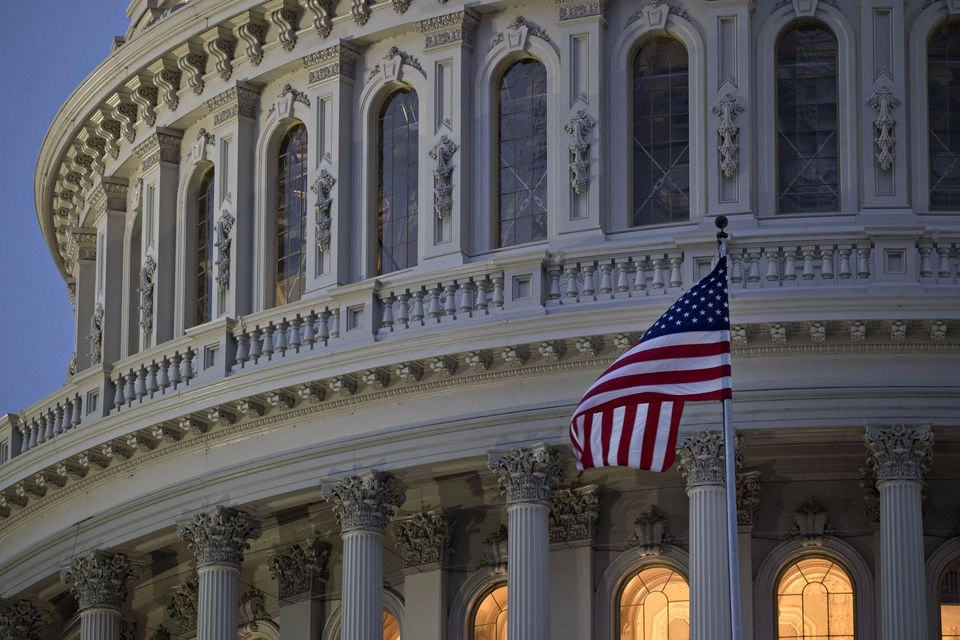
stock image
The letter, signed by New York Republican Congresswoman Claudia Tenney and supported by a group of 16 congressmen and women, states "serious concerns" regarding the Government's proposal to prohibit the import of goods from Israeli-occupied territories.
It references Section 999 of the Internal Revenue Code of 1986 which opposes “foreign boycotts against friendly nations, particularly those aimed at Israel”.
If Ireland was to be added to the list of countries which boycott Israel, it would impose specific tax reporting requirements and potential penalties for US individuals and businesses engaged in certain activities in those countries, the letter said.
The group describe the work of the Irish government on the OTB as “part of broader effort aligned with the global Boycott, Divestment, and Sanctions (BDS) movement which seeks to economically isolate Israel”.
The letter said: “Last month, Irish Foreign Affairs and Trade Minister Simon Harris introduced legislation to prohibit the import of goods and services originating from territories under Israeli administration that they characterize as ‘occupied,’ including Judea and Samaria, Gaza, parts of Jerusalem and the Golan Heights.
“This measure is part of a broader effort aligned with the global Boycott, Divestment, and Sanctions (BDS) movement, which seeks to economically isolate Israel. Such policies not only promote economic discrimination but also create legal uncertainty for U.S. companies operating in Ireland.
“We encourage the Treasury Department to assess whether Ireland's proposal indicate that they require or may require participation in or encouragement of an international boycott within the meaning of Section 999(a)(3). If the criteria are met, Ireland should be added to the boycott list to ensure that U.S. companies are informed of their reporting obligations and protected from unintended legal exposure.
“The United States must send a clear signal that efforts to economically isolate Israel will carry consequences, and that U.S. law designed to combat such discrimination will be enforced.
“We appreciate your attention to this matter and look forward to your response.”
In June Tánaiste Simon Harris outlined the OTB to cabinet after which a cross-party Oireachtas foreign affairs committee examined proposals and penned a pre-legislative scrutiny report on the bill.
Mr Harris said Ireland is the only country to publish legislation to ban imports from the occupied Palestinian territories, saying it is “pretty lonely out there”, adding it would be “a hell of a lot better” if Europe moved together on it.
“This is an important measure, because we are speaking up and speaking out on behalf of the people of Ireland in relation to this genocidal activity,” said Mr Harris.
“But, of course, I actually think and hope that the real benefit of publishing this legislation will be that it may inspire other countries to do likewise, because it’s important that every country uses every lever at its disposal.
“Our own domestic legislation comes against a backdrop of two important developments in Europe.
“Firstly, we saw for the very first time a review concluded of the Association Agreement, which told us what we already knew, but stated it very clearly that Israel is in breach of its human rights obligations.
“Secondly, Ireland joined with nine other European countries in calling on the European Commission to now review the EU’s obligations under the ICJ advisory opinion.
“I don’t believe the European Union is in compliance with its obligations under the ICJ advisory opinion. We now want to see Europe legally review whether it’s right to have trade in goods or services at an EU level with the occupied Palestinian territories.”
In July the chair to the Foreign Affairs Committee John Lahart said Ireland has been “smeared” and “bullied” over its stance on Gaza and the Occupied Territories Bill.
The Fianna Fáil TD was speaking at the launch of the report by the committee on the pre-legislative scrutiny of the Occupied Territories Bill.
“Ireland's reputation has been traduced internationally. We’ve been smeared as a country, lied about. Those things need to be confronted,” Mr Lahart said.
“There is a recommendation that resources be invested to ensure that this, the reasons and the objectives behind the bill, are communicated properly and that we don't suffer or experience this reputation again,” he added.
While Mr Lahart said some have said the passing of this bill would be symbolic, the goal of the legislation was to put pressure on the Israeli government.
The report, produced by the committee, “strongly” advised that the bill would include services as well as goods.
Simon Harris has indicated that the bill is likely to go before the Dáil and Seanad in early autumn.
If passed the bill would lead to Ireland being added to a list of countries which implement an "unsanctioned international boycott".
Join the Irish Independent WhatsApp channel
Stay up to date with all the latest news














